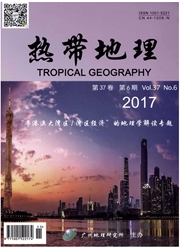

 中文摘要:
中文摘要:
文章通过文献分析法,在回顾西方家庭厨房研究的背景和内容的基础上,总结得出:西方文化地理学在全球化、现代化、城市化、后殖民化和后工业化的背景下,主要从物质文化、性别文化和跨地方文化3方面探讨了现代厨房作为社会文化空间的建构,它们认为厨房作为一个家庭空间,具有强烈的社会性,并强调厨房在构建人类日常生活和社会环境之间关系的过程中起主导性作用,而并非仅仅是家庭烹饪活动的承载空间。基于此,根据当代中国城市家庭的特点,文章对中国文化地理学的家庭研究现状进行了展望,指出今后中国文化地理的家庭研究需将家庭视为一个社会文化空间,分析家庭如何成为连结不同尺度空间的重要节点以及如何承载复杂的社会关系和社会分工,以期对中国文化地理学的家庭研究以及有关微观空间研究的进一步发展作出理论方面的贡献。
 英文摘要:
英文摘要:
Kitchen culture is frequently debated in current western home studies. With the growth of research interests of home, domestic practice and family lives, and the increasing anxiety of the loss of home cooking in contemporary western world, the domestic kitchen in both western and non-western society attracts more and more attentions of the scholars from various disciplines, especially the social studies in anthropology, sociology and cultural geography. This review outlines these three themes - social life in kitchens from material studies;gendered kitchen from feminist research; and hybrid kitchen in postcolonial society - in the current studies by western scholars on the kitchen issues in both western and non-western worlds, and then points out the importance of adding kitchen researches through non-western perspectives which is recently absence from two sides: one is, the Chinese family in everyday life; the other is, the ‘extreme’ family life in contemporary China.
 关于刘晨:
关于刘晨:
 关于曾国军:
关于曾国军:
 同期刊论文项目
同期刊论文项目
 同项目期刊论文
同项目期刊论文
 期刊信息
期刊信息
